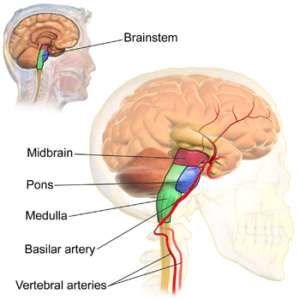
What is arousal? According to the APA dictionary of psychology:
1. a state of physiological activation or cortical responsiveness, associated with sensory stimulation and activation of fibers from the reticular activating system.
2. a state of excitement or energy expenditure linked to an emotion. Usually, arousal is closely related to a person’s appraisal of the significance of an event or to the physical intensity of a stimulus. Arousal can either facilitate or debilitate performance. See also catastrophe theory. —arouse vb.
The key component for arousal is the reticular activating system (RAS). This is responsible for alertness and focus in mammals. Here is another feature of brain activity that is responsible for real-time adaptations in the environment. But for a machine that can be relatable to people RAS is also critical. Imagine how much more empathy or anthropomorphic a machine becomes when it conveys something that all humans experience, feeling sleepy, tired and/or feeling very active with energy!
To Mimic RAS involves signalling or processing that captures things such as battery levels, time of day, feelings of exhaustion. These signals have to be integrated into the information processing of the machine in such a way that it affects its choices and interpretations of information both externally and its internal states.